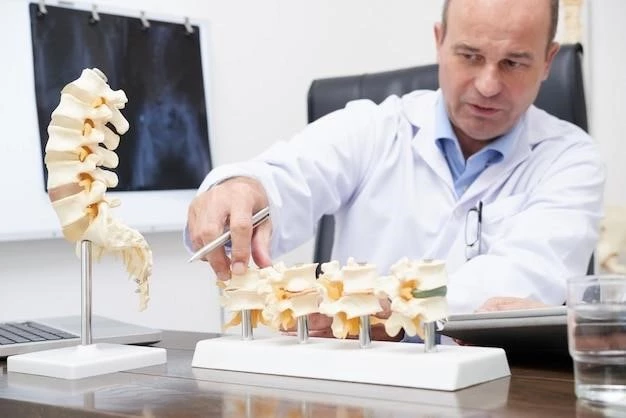Introduction to Proteus Syndrome
The Internet provides a wealth of information on Proteus syndrome, a rare genetic disorder characterized by abnormal tissue growth․
Overview of Proteus Syndrome
Proteus syndrome is an extremely rare genetic disorder characterized by excessive and disproportionate tissue growth affecting bones, skin, muscles, and blood vessels․ The condition is progressive and can lead to various physical manifestations and complications․
Causes and Genetics
The Internet provides a variety of information on the genetic mutations associated with Proteus syndrome, contributing to its development․ It is crucial to understand the underlying causes of this rare condition․
Genetic Mutation Associated with Proteus Syndrome
The genetic mutation linked to Proteus syndrome leads to the excessive and irregular growth of various tissues, impacting bones, skin, and blood vessels․ Understanding this mutation is essential in comprehending the development of the syndrome․
Factors Contributing to the Development of Proteus Syndrome
Data available online indicates various factors that may contribute to the development of Proteus syndrome, including genetic mutations, age-related changes, and environmental influences․ Understanding these factors is crucial for comprehensive management of the condition․
Symptoms and Manifestations
Information retrieved from the internet indicates a range of physical manifestations associated with Proteus syndrome, including abnormal growth of bones, skin, muscles, and blood vessels․ Understanding these symptoms is critical for early identification and management of the condition․
Physical Characteristics of Proteus Syndrome
Information retrieved from the Internet suggests that Proteus syndrome is characterized by the disproportionate overgrowth of bones, skin, muscles, fatty tissues, and blood vessels․ These physical manifestations can vary in severity and may lead to unique challenges for individuals with the condition․
Common Symptoms Experienced by Individuals with Proteus Syndrome
From the information found online, individuals with Proteus syndrome commonly experience symptoms such as overgrowth of bones, skin, muscles, fatty tissues, blood vessels, and lymphatic vessels․ These manifestations can vary in severity and impact the overall health and well-being of affected individuals․

Diagnosis and Screening
Information suggests that the diagnosis of Proteus syndrome involves a thorough evaluation of physical manifestations and genetic testing to confirm the presence of the condition․ Early screening and accurate diagnosis are crucial for effective management․
Methods Used to Diagnose Proteus Syndrome
Diagnosing Proteus syndrome involves a comprehensive assessment of physical presentations, often including genetic testing to confirm the specific mutation associated with the condition․ Understanding these diagnostic methods is crucial for accurate identification and appropriate management of individuals with Proteus syndrome․
Importance of Early Detection and Screening
Various online sources emphasize the critical importance of early detection and screening for Proteus syndrome to enable timely intervention and appropriate management strategies․ Early identification can significantly impact the long-term outcomes and quality of life for individuals affected by this rare condition․
Treatment Options
On the Internet, various sources discuss treatment options for Proteus syndrome, including surgical interventions, therapies to manage symptoms, and a multidisciplinary approach for comprehensive care․
Multidisciplinary Approach to Managing Proteus Syndrome
Online sources highlight the importance of a multidisciplinary approach in managing Proteus syndrome, which may involve coordinated care from various medical specialties to address the complex needs of individuals with this rare condition․ Collaborative efforts are essential for optimizing treatment outcomes and improving quality of life for affected individuals․
Surgical Interventions and Therapies for Individuals with Proteus Syndrome
Surgical interventions and various therapies are often recommended for individuals with Proteus syndrome to address physical manifestations such as overgrowth of bones, skin, and muscles․ These treatment modalities aim to improve functionality and quality of life for affected individuals․
Complications and Prognosis
Proteus syndrome can lead to various complications due to the disproportionate overgrowth of tissues in the body․ Understanding the long-term prognosis and potential challenges associated with this rare genetic disorder is essential for addressing the complex needs of affected individuals․
Potential Complications Associated with Proteus Syndrome
Proteus syndrome may lead to various complications due to the abnormal tissue growth, affecting bones, skin, and blood vessels․ Complications can include functional impairment, increased risk of thrombosis, and challenges in managing the overgrowth of affected tissues․
Long-Term Outlook and Prognosis for Patients with Proteus Syndrome
For patients with Proteus syndrome, the long-term outlook and prognosis may vary depending on the individual’s specific manifestations and response to treatment․ Understanding the potential challenges and complications associated with the condition is crucial for the management and care of affected individuals․
Research and Advances
Information available online highlights ongoing research studies and technological innovations aimed at improving the diagnosis and treatment of Proteus syndrome, offering hope for advancements in managing this rare genetic disorder․
Current Studies and Research Initiatives on Proteus Syndrome
Current research initiatives focus on exploring various aspects of Proteus syndrome, including genetic factors, diagnostic methods, treatment modalities, and potential advancements․ Collaborative studies aim to enhance understanding and management of this rare genetic disorder․
Technological Innovations Improving Diagnosis and Treatment of Proteus Syndrome
Recent technological advancements in imaging modalities and genetic testing have significantly improved the accuracy of diagnosing Proteus syndrome․ These innovations have also enhanced the development of targeted treatment strategies, offering new hope for individuals affected by this rare genetic disorder․

Support and Resources
The internet sources provide access to various organizations and support groups offering assistance to individuals with Proteus syndrome․ These resources include educational materials and programs aimed at helping individuals cope with the challenges posed by this rare genetic disorder․
Organizations and Support Groups for Individuals with Proteus Syndrome
A variety of organizations and support groups exist online to provide assistance and resources for individuals affected by Proteus syndrome․ These platforms offer valuable support, guidance, and educational materials to help individuals and families cope with the challenges of living with this rare genetic disorder․
Accessing Educational Materials and Assistance for Coping with Proteus Syndrome
Patients and families can access online educational materials and support services to help cope with the challenges posed by Proteus syndrome․ These resources offer valuable information and assistance in managing the condition effectively and enhancing the quality of life for affected individuals․
